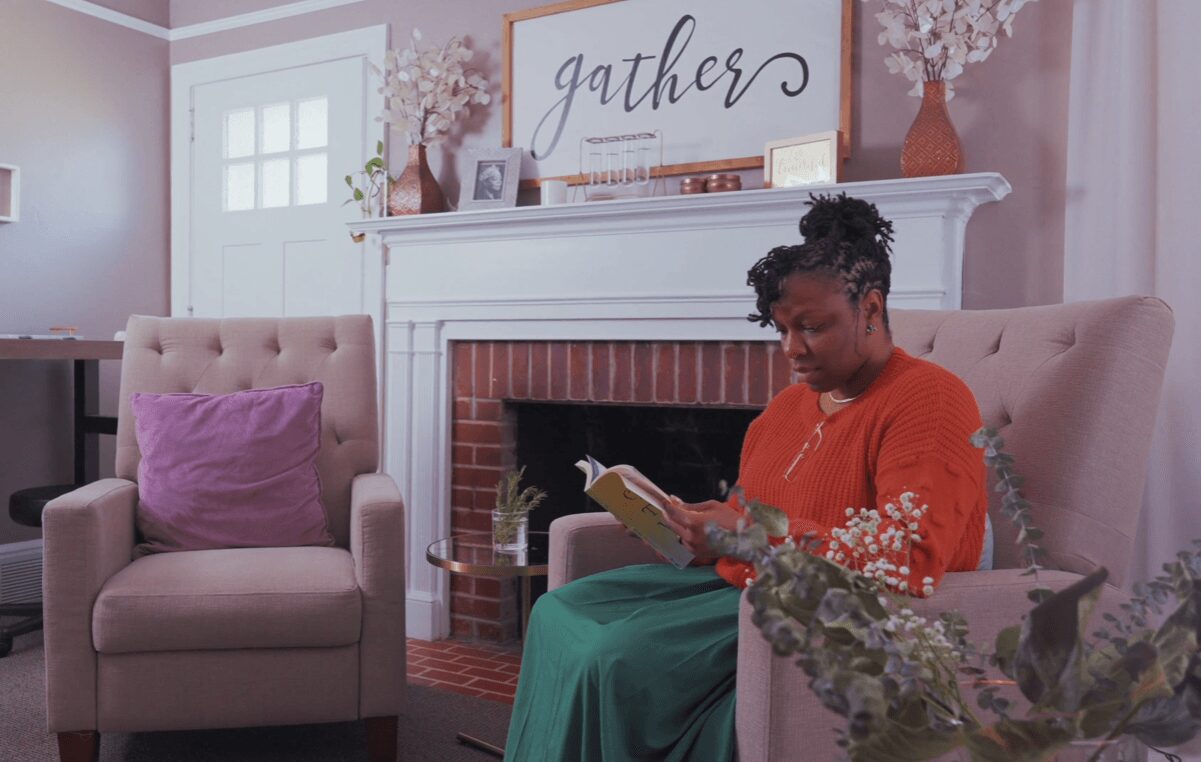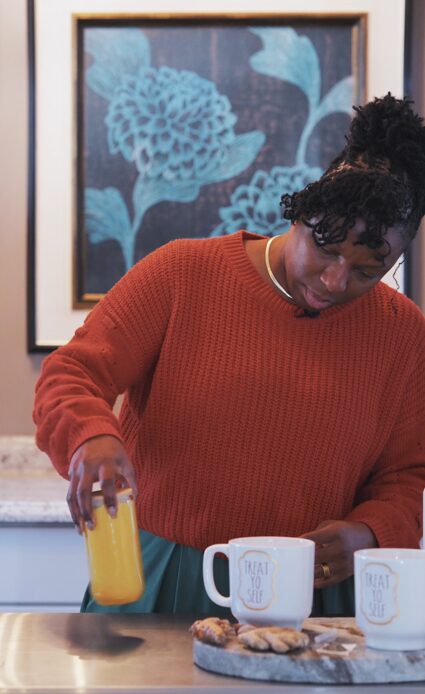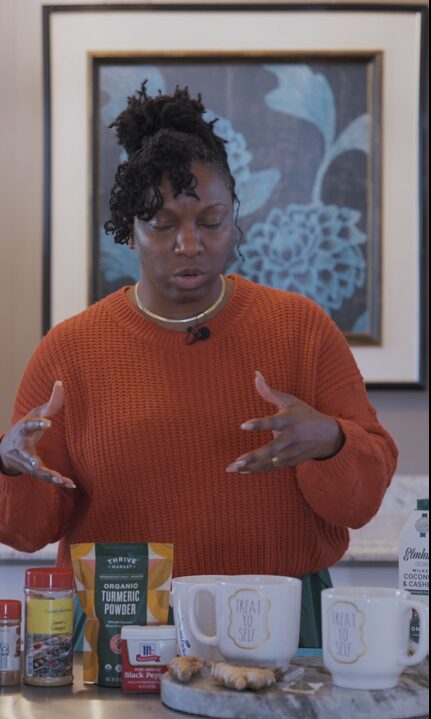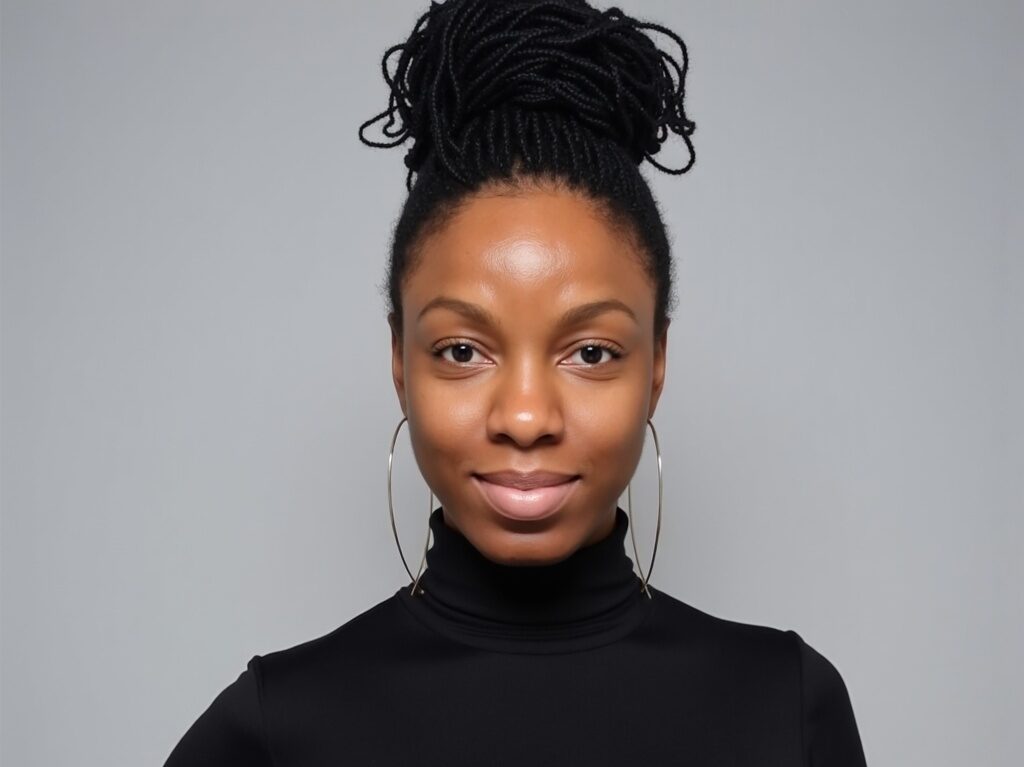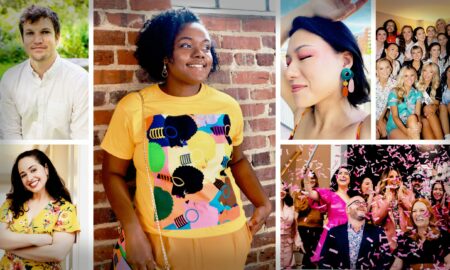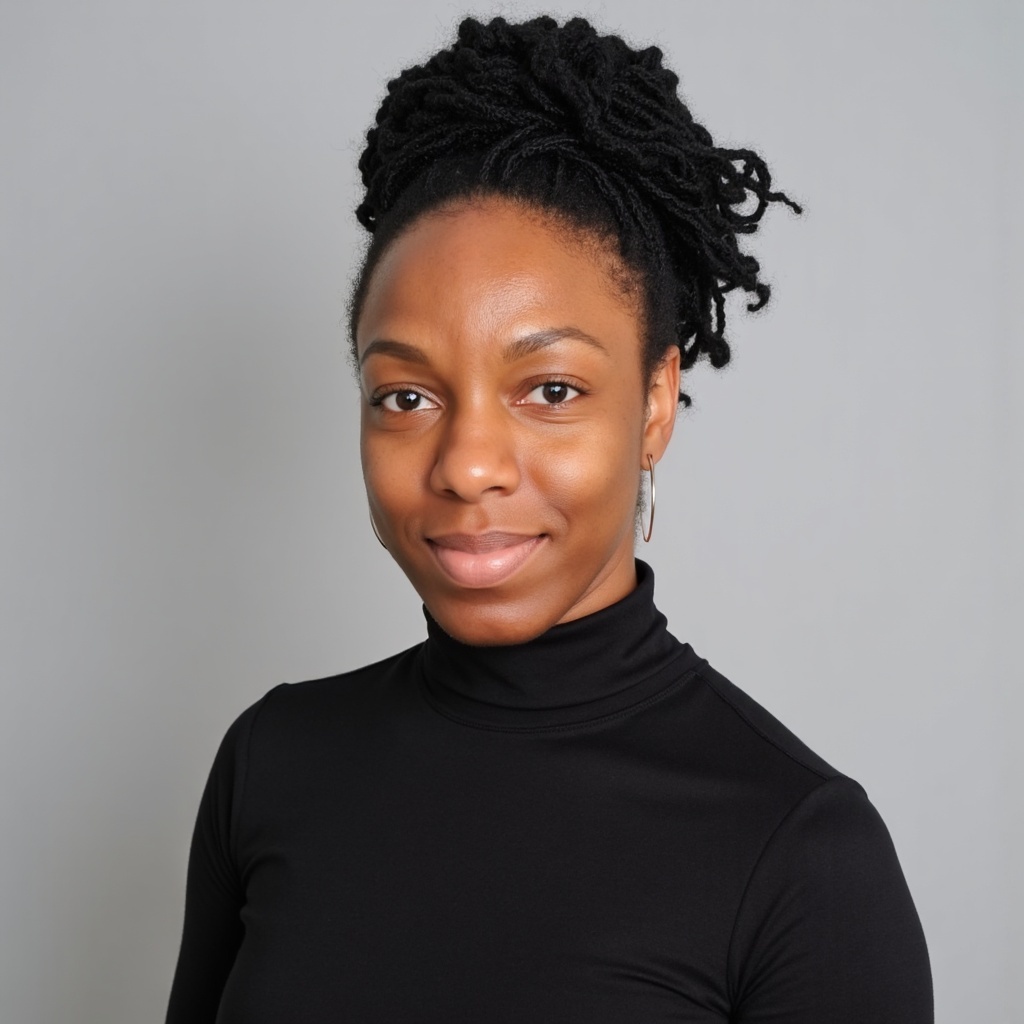

We recently had the chance to connect with Danielle Izaak-Lewis and have shared our conversation below.
Danielle, we’re thrilled to have you with us today. Before we jump into your intro and the heart of the interview, let’s start with a bit of an ice breaker: What’s more important to you—intelligence, energy, or integrity?
My emphasis on personal responsibility, self-accountability, fact-based decision making, and maintaining boundaries all point to integrity being foundational to everything else I do. I would describe myself as someone who values consistency and being true to my principles.
While I possess both intelligence (evidenced by my financial aptitude, emotional intelligence, and fact-based approach) and energy (shown through my strong work ethic, ambition, and being both a “dreamer and doer”), integrity is the value that governs how I apply both my intelligence and energy.
Integrity creates the framework within which my intelligence operates and my energy is directed. Without integrity, intelligence can be manipulative and energy can be destructive. But with integrity as my foundation, intelligence and energy become forces for positive impact in my relationships and community.
Can you briefly introduce yourself and share what makes you or your brand unique?
I’m Danielle Izaak-Lewis, and I’m the founder of Mindful Nutrition & Wellness Solutions a Noyan Worldwide company. What I do is really about helping Black, Indigenous, and women of color recalibrate how they approach wellness. My journey into this work started from a very personal place—I noticed that so many women in my generation, myself included, were juggling careers, family, and community, but paying the price with our health. We were advancing professionally while quietly dealing with yo-yo dieting, body discomfort, health issues, disconnection from our cultural foods, and the kind of burnout that leaves you running on fumes.
That experience pushed me to go deeper. I earned my Master’s in Applied Clinical Nutrition, studied functional and integrative approaches, and trained myself in epigenetics and biomarkers. But what makes my brand different isn’t just the science—it’s that we blend evidence-based nutrition with cultural wisdom and trauma-informed care. We don’t hand out generic meal plans. We create sacred, supportive spaces where women can acknowledge what’s really going on in their bodies and then design strategies that honor both their heritage and their current capacity.
Right now, I’m especially excited about a six-month group coaching and consulting program I created for high-achieving women of color. It starts with a detailed assessment to figure out what phase of recalibration someone is in, and then guides them step by step into restoring energy, clarity, and ease. For me, the bigger vision is about breaking generational wellness patterns and helping women build a legacy of health that supports their leadership and their joy.
Thanks for sharing that. Would love to go back in time and hear about how your past might have impacted who you are today. What part of you has served its purpose and must now be released?
For a long time, achievement and accomplishment were the ways I sought validation—whether that was degrees, certifications, or professional milestones. On the surface it looked like success, but underneath I was using those things as a way to feel seen and acknowledged from the outside. I’ve had to release that part of myself because it no longer serves me.
Today, I validate myself differently—by asking: does this align with my values? Does it bring me peace of mind? Does it feel like a full, embodied yes? Having lived through trauma, I’ve become very purposeful about where I invest my energy and time. Recalibrating my nervous system and living from a place of inner alignment matters far more to me now than external recognition ever could.
And that shift has made me a better guide for my clients—because I can walk with them not from a place of chasing validation, but from a place of wholeness, showing what it looks like to honor your body’s wisdom and live in alignment.
When did you stop hiding your pain and start using it as power?
I stopped hiding my pain when I decided to truly dig into my healing—looking at my own trauma, the generational patterns in my family, and how they were shaping my choices and beliefs. That was the real pivot point. I realized I had been carrying a victim mindset, and it was influencing how I treated myself, how I showed up in relationships, and even how I lived day to day.
When I started releasing that mindset, everything shifted. I made choices about how I took care of myself from the inside out. I began to see that my pain wasn’t something to be ashamed of or to keep tucked away—it was actually a source of power. Now, I use it to stand as another voice saying: yes, you can heal. With the right support, belief, and consistent practices that build new thought patterns, there really isn’t anything holding you back.
That reframing not only transformed my personal life—it’s the foundation of the work I do with women today. My own healing journey allows me to meet them where they are with empathy and to model what’s possible when you turn pain into purpose.
Sure, so let’s go deeper into your values and how you think. How do you differentiate between fads and real foundational shifts?
For me, the difference between a fad and a real foundational shift comes down to a few things. First, time and consistency. Fads tend to burn hot and fast—they peak quickly, make a lot of noise, and then fade. Foundational shifts, on the other hand, build momentum gradually and stand the test of time.
I also look at substance over hype. My background in clinical nutrition and integrative health means I don’t stop at the surface buzz. I’m always asking: What real problem does this solve? Is there credible evidence of impact? Do the fundamentals make sense?
Another layer is alignment with core principles. Wellness isn’t about chasing trends—it’s about addressing fundamental human needs in ways that are sustainable. So I ask myself: does this practice or idea truly support the body, mind, and spirit in alignment with long-term values?
I also seek multiple validators. I don’t rely on one loud voice or a single study. I read widely, consider diverse perspectives, and look for converging evidence across different credible sources.
And finally, I believe in personal testing. I value accountability and self-awareness, so before fully adopting or recommending something, I’ll often observe it in practice—sometimes with my own body or with small, controlled steps. That way, I’m seeing real results, not just theoretical promises.
That approach is part of what makes my work different: I cut through the noise of wellness fads and help women focus on the practices and strategies that actually have the power to recalibrate their health and sustain them over the long term.
Thank you so much for all of your openness so far. Maybe we can close with a future oriented question. What do you understand deeply that most people don’t?
What I’ve come to understand is that legacy isn’t built through grand gestures or titles—it’s built through daily consistency. It’s the compound power of small, intentional choices made over and over again in alignment with your values. Most people focus on the big moments, but I’ve seen how integrity in the everyday creates the ripple effects that last.
I’ve also learned that vulnerability is a form of strength. For a long time, I thought leadership meant appearing invincible, but I’ve realized that showing up authentically human—owning your struggles as well as your wins—gives others permission to do the same. That’s part of how legacy is passed on: by creating safe spaces where others can bring their full selves forward.
Personal responsibility is another key piece. When I take full ownership of my actions, it not only transforms my own life, it sets an example. People often underestimate how their accountability shapes the behavior of those around them. Add to that a growth mindset—the willingness to learn and evolve at every stage of life—and you begin to see how legacy isn’t just about what you achieve, but how you live in a way that empowers others to evolve as well.
For me, even financial stewardship is part of this picture. The decisions I make with integrity around resources and opportunities create impact not just for today, but for future generations.
When you put all of these together—daily integrity, authentic vulnerability, accountability, growth, and stewardship—you begin to see that legacy is less about what you accumulate and more about who you become. It’s about living with such alignment that your presence elevates others long after the moment has passed.
Contact Info:
- Website: https://www.noyanworldwide.com
- Instagram: https://www.instagram.com/noyanwwinc/
- Linkedin: https://www.linkedin.com/in/danielle-izaak-b285b0248
- Facebook: https://www.facebook.com/NoyanWWInc
